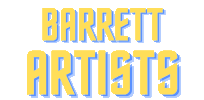Hey, future musician! Looking for guidance on becoming a successful independent music artist? Well, you’ve come to the right place! At Barrett Artist, we’ve been working with talented musicians for years, gaining valuable experience and insider knowledge of the music industry. Get ready to discover the secrets of becoming a successful music artist.
I promise you an incredible reading experience filled with joy, happiness and a dash of curiosity. Together, we’ll explore the secrets of the music industry, learn how to develop your unique sound, master the art of self-promotion, manage your finances like a pro, and so much more.
So, trust me when I say, this is the article you don’t want to miss. Get ready to Know how you can become an independent music artist.
IN THIS ARTICLE
How Music Industry Work?

Becoming an independent music artist can be an exciting and fulfilling journey.
Understanding how the music industry works and what to expect as a newcomer is crucial.
Here’s a guide to help you navigate the industry and increase your chances of becoming a popular independent music artist.
In the music industry, the treatment of new artists can vary.
Some individuals and organizations are genuinely supportive and offer opportunities for exposure, collaboration, and mentorship.
However, exercising caution and seeking advice from trusted sources is important to avoid potential exploitation.
Becoming a famous independent music artist requires talent, hard work, persistence, and some luck.
While there’s no guaranteed formula for success, creating high-quality, unique music, developing a strong online presence, engaging with your audience, and networking can increase your chances.
Continuous improvement, experimentation, and adaptation to changing trends are also essential.
Support is available to independent artists. Online platforms and social media have made music distribution more accessible.
Artist development programs, music associations, and local music scenes can provide guidance and opportunities for growth.
The music industry can be friendly but competitive.
Building relationships, networking, and collaborating with others can help you navigate it effectively. Surrounding yourself with a supportive community can provide guidance and opportunities.
Newcomers face challenges, such as establishing their unique sound and identity, gaining exposure in a saturated market, and financial constraints.
Overcoming these challenges requires perseverance, a solid work ethic, and a strategic approach.
Success as an independent music artist relies on talent, hard work, resilience, and continuous learning.
Stay true to your artistic vision, embrace growth opportunities, and connect with like-minded individuals.
By staying focused, determined, and open to collaboration, you can increase your chances of achieving your goals in the dynamic world of music.
Now, let’s start by
Identifying Your Unique Sound

Discovering your unique sound as a music artist is an essential part of standing out and connecting with your audience. Here are some steps and resources to help you in the process:
- Explore Different Genres and Styles: Begin by immersing yourself in various genres and styles of music. Listen to a wide range of artists and pay attention to the elements that resonate with you. Take note of the melodies, rhythms, instrumentation, and production techniques that capture your interest.
- Experiment and Combine Influences: Once you have a good understanding of different genres, start experimenting with blending elements from various styles. This can involve fusing different genres, incorporating unconventional instruments, or adding unique sonic textures. Allow yourself the freedom to explore and create without limitations.
- Reflect on Personal Experiences: Draw inspiration from your own life experiences, emotions, and perspectives. Your unique voice and story can shape your sound and lyrics. Consider how you can infuse your journey into your music, creating a genuine and relatable connection with your audience.
- Collaborate and Seek Feedback: Collaborating with other musicians and producers can provide fresh perspectives and help you refine your sound. Seek out opportunities to work with like-minded artists, both locally and online. Additionally, seek feedback from trusted individuals in the industry, such as mentors, fellow musicians, or music professionals, who can offer constructive criticism and guidance.
- Utilize Online Platforms and Communities: Take advantage of online platforms and communities specifically designed for music artists. Websites like SoundCloud, Bandcamp, and YouTube allow you to share your music with a global audience. Engage with your listeners, participate in discussions, and seek feedback from fellow artists in these communities. Networking and connecting with others can provide valuable insights and opportunities.
- Embrace Continuous Growth: Developing your unique sound is an ongoing process. Embrace growth by constantly learning and expanding your musical knowledge. Attend workshops, music conferences, and seminars to gain new skills and perspectives. Stay updated on emerging trends and technologies in the industry to push the boundaries of your sound.
Remember, discovering your unique sound takes time and exploration. Stay true to yourself, be open to experimentation, and allow your creativity to guide you.
Embrace feedback and use it to refine and evolve your sound.
With dedication, perseverance, and a willingness to take risks, you can find your distinct voice as a music artist.
Creating Your Brand
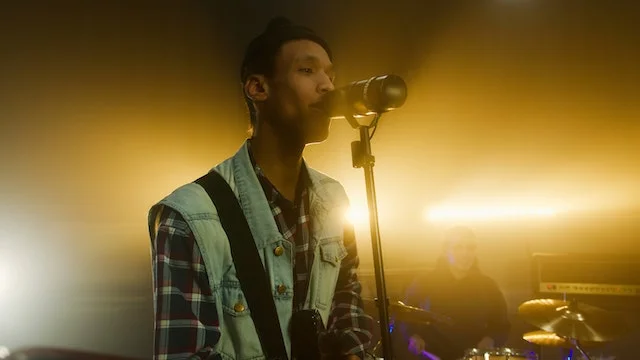
Developing a strong brand and image is crucial for establishing yourself as a music artist.
Here are some suggestions and tools to help you create your brand and develop your image:
- Define Your Unique Identity: Start by defining what sets you apart from other artists. Reflect on your values, passions, and artistic vision. Consider the emotions and messages you want your music to evoke. Use these insights to shape your brand identity.
- Craft a Compelling Bio: Write a concise and engaging artist bio that captures the essence of your music and persona. Highlight your musical influences, accomplishments, and unique qualities. Keep it authentic and make it relatable to your target audience.
- Professional Visuals: Invest in professional promotional photos that visually represent your brand. These images should convey your personality, style, and musical genre. Use high-quality photos for your social media profiles, press releases, and promotional materials.
- Design a Memorable Logo: Create a logo or symbol that visually represents your brand. It should be unique, recognizable, and reflect your music style. If you’re not proficient in graphic design, there are user-friendly online tools like Canva or Adobe Spark that can help you create a professional-looking logo.
- Build an Online Presence: Establish your presence on social media platforms that resonate with your target audience, such as Instagram, Facebook, or Twitter. Consistently share content related to your music, including updates, behind-the-scenes footage, and engaging posts that reflect your brand identity.
- Develop a Website: Create a website to showcase your music, bio, upcoming events, and merchandise. Platforms like WordPress, Wix, or Squarespace offer user-friendly website builders with customizable templates. Make sure your website design aligns with your brand image.
- Choose a Stage Name: If you decide to adopt a stage name, consider one that aligns with your brand and is easy to remember and pronounce. Conduct a thorough search to ensure it’s not already in use by another artist. Consult friends, family, or industry professionals for feedback before finalizing your choice.
- Consistency in Messaging: Maintain consistency in your branding and messaging across all platforms. Use consistent colors, fonts, and tone of voice to create a cohesive brand experience. This helps build recognition and reinforces your image in the minds of your audience.
- Engage with Your Audience: Actively engage with your fans and followers through social media comments, direct messages, and live events. Show appreciation for their support and create a genuine connection. Respond to their inquiries and feedback promptly, showing that you value their engagement.
Remember, developing your brand and image is an ongoing process.
Stay true to yourself, be consistent, and continuously refine your brand as you evolve as an artist.
With dedication, authenticity, and a well-defined brand, you can establish a strong presence and make a lasting impression on your audience.
Building your skillset
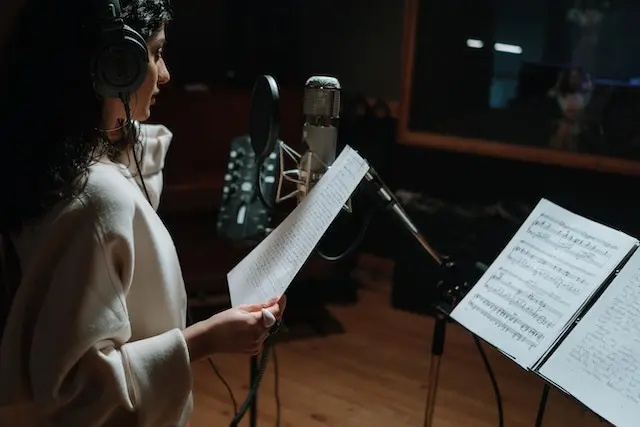
Building a strong skill set as a music artist is essential for your growth and development. Here are some suggestions and resources to help you enhance your skills:
Learning Musical Theory:
Understanding musical theory can greatly benefit your overall musicianship. Here are some ways to learn musical theory:
- Online Courses: Platforms like Coursera, Udemy, and Skillshare offer a variety of online courses on music theory. These courses provide structured lessons, interactive exercises, and assessments to help you grasp the fundamentals.
- YouTube Tutorials: Many music educators and channels on YouTube provide free tutorials on music theory. Look for reputable channels like “Music Theory for Songwriters” or “Rick Beato” for comprehensive and easy-to-understand lessons.
- Books and eBooks: There are several music theory books available that cater to different skill levels. Consider titles like “The Complete Idiot’s Guide to Music Theory” by Michael Miller or “Tonal Harmony” by Stefan Kostka and Dorothy Payne.
- Mobile Apps: Utilize mobile apps like “Music Theory Helper,” “Complete Music Reading Trainer,” or “Perfect Ear” for interactive lessons, exercises, and quizzes on music theory.
Practicing Regularly:
Consistent practice is crucial for honing your skills. Here’s how you can establish an effective practice routine:
- Set Goals: Determine specific goals for each practice session. It could be learning a new song, mastering a technique, or improving your improvisation skills. Clear goals help keep you focused and motivated.
- Structured Practice: Break your practice session into focused segments. Dedicate time to scales, chords, rhythm exercises, sight-reading, and repertoire. A balance between technical exercises and creative exploration.
- Metronome and Backing Tracks: Use a metronome to develop your sense of timing and rhythm. Additionally, play along with backing tracks or use loop pedals to simulate playing with a band or create musical contexts for improvisation.
- Recording Yourself: Regularly record and listen to your practice sessions. It allows you to objectively evaluate your progress, identify areas for improvement, and track your growth over time.
- Seek Feedback: Share your progress with trusted mentors, music teachers, or fellow musicians. They can provide constructive feedback and suggest areas to focus on for improvement.
Remember, building your skill set takes time and consistent effort.
Embrace a growth mindset, be patient, and celebrate your milestones along the way.
With dedication, regular practice, and a thirst for knowledge, you can continue to develop as a skilled and versatile music artist.
Recording Your Music
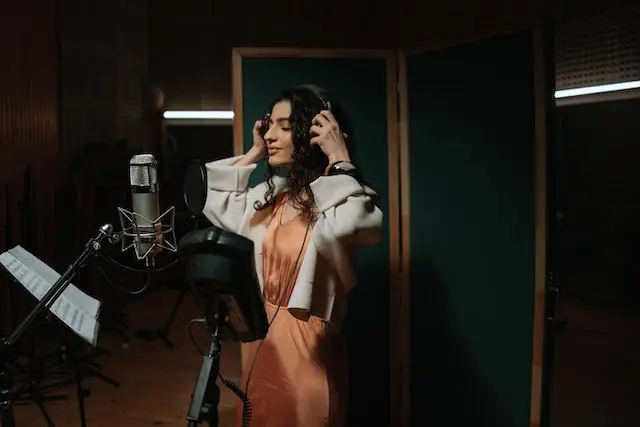
Recording your music is an important aspect of your journey as an independent music artist. Let’s explore the basics of setting up a home studio and professional studio recording, as well as compare the two:
Home Studio Basics:
Setting up a home studio allows you to record your music in a comfortable and convenient environment. Here’s what you need to get started:
- Computer: A capable computer or laptop is the central component of your home studio. Ensure it has sufficient processing power and memory to handle recording software and plugins.
- Digital Audio Workstation (DAW): Choose a DAW that suits your needs and budget. Popular options include Ableton Live, Logic Pro, FL Studio, or Pro Tools. These software programs allow you to record, edit, and mix your music.
- Audio Interface: An audio interface connects your instruments and microphones to your computer. It converts analog audio signals into digital data. Focusrite Scarlett and PreSonus AudioBox are popular entry-level audio interfaces.
- Microphones: Select microphones based on your recording needs. A versatile dynamic microphone like the Shure SM58 is suitable for vocals and instruments. For more detailed recordings, consider a condenser microphone like the Audio-Technica AT2020.
- Headphones and Monitors: Invest in studio-quality headphones for critical listening during recording and mixing. Additionally, studio monitors (speakers) provide accurate sound representation and are ideal for mixing and mastering.
Professional Studio Recording:
Professional studios offer advanced equipment, acoustically treated spaces, and experienced engineers. Here’s an overview of the process:
- Booking and Preparation: Contact the studio to book a session. Discuss your goals, budget, and desired outcome. Prepare your songs, charts, and any necessary session files to streamline the recording process.
- Equipment and Setup: Professional studios have a wide range of high-quality microphones, preamps, consoles, and outboard gear. The engineers will handle the technical setup and ensure optimal sound capture.
- Recording and Production: Work with the engineer to record your music. They will guide you through the process, offer suggestions, and use their expertise to capture the best performances. The studio environment allows for multi-tracking, enabling you to record each instrument and vocal separately.
- Mixing and Mastering: Once the recording is complete, the engineer will mix the individual tracks, balancing levels, applying effects, and enhancing the overall sound. Mastering, the final step, involves fine-tuning the mix and preparing the tracks for distribution.
Comparison between Home Studio and Professional Studio:
Both home studios and professional studios have their advantages and considerations:
- Cost: Home studios are more cost-effective, as you have control over the equipment and can work at your own pace. Professional studios require a higher financial investment due to rental fees, studio time, and engineer fees.
- Equipment and Sound Quality: Professional studios have access to top-tier gear and acoustic treatment, resulting in exceptional sound quality. Home studios offer good quality recordings but may have limitations based on equipment and room acoustics.
- Expertise: Professional studios provide the expertise of experienced engineers who can offer guidance and optimize the recording process. In a home studio, you’ll be responsible for learning and implementing recording techniques.
- Convenience and Flexibility: Home studios offer convenience and flexibility, allowing you to work at any time and experiment freely. Professional studios may have scheduling constraints, but they offer a controlled environment and access to specialized equipment.
Ultimately, the choice between a home studio and a professional studio recording depends on your goals, budget, and resources.
Home studios are ideal for independent artists starting their journey, while professional studios may be preferable for complex projects or for achieving a polished, industry-standard sound.
Remember, regardless of the recording setup, focus on capturing great performances and conveying your artistic vision.
Continuously strive to improve your recording techniques and embrace the opportunities that each setup presents.
Promoting Your Music

Promoting your music is crucial for gaining visibility and attracting new listeners. Here are some effective ways to promote your music, including social media promotion, music streaming platforms, and additional promotion ways:
Social Media Promotion:
Social media platforms provide powerful tools for reaching and engaging with your audience. Consider the following strategies:
- Create Engaging Content: Regularly share engaging posts, such as behind-the-scenes footage, sneak peeks, music videos, live performances, and updates about upcoming releases or shows. Use captivating visuals, compelling captions, and relevant hashtags to increase visibility.
- Engage with Your Audience: Respond to comments, messages, and mentions promptly. Foster a sense of community by interacting with your followers, asking for their input, and showing appreciation for their support.
- Collaborate with Influencers: Collaborating with social media influencers or other artists can help expand your reach. Partner with influencers whose audience aligns with your target demographic to promote your music and gain new followers.
- Live Streaming and Q&A Sessions: Utilize live streaming features on platforms like Instagram or Facebook to connect directly with your audience. Host live performances, Q&A sessions, or behind-the-scenes glimpses to create a sense of exclusivity and authenticity.
Music Streaming Platforms Promotion:
Streaming platforms offer a vast audience base for discovering and sharing your music. Consider these tips:
- Create a Strong Profile: Optimize your profile on streaming platforms such as Spotify, Apple Music, or SoundCloud. Craft a compelling bio, upload high-quality artist photos, and curate your discography to showcase your best work.
- Collaborate on Playlists: Collaborate with other artists or curators to feature your music on popular playlists. Engage with playlist curators, submit your tracks for consideration, or create your own playlists to showcase your musical taste and promote your own music.
- Cross-Promote on Social Media: Share links to your music on social media platforms, directing your followers to your profiles on streaming platforms. Encourage your audience to follow and stream your music, helping to boost your visibility and reach.
- Release Strategy: Plan your release strategy effectively. Consider releasing singles or EPs before dropping a full-length album to generate anticipation and maintain a consistent presence on streaming platforms.
Additional promotional ideas:
- Music Blogs and Online Magazines: Submit your music to relevant music blogs and online magazines for potential reviews, interviews, or features. Research and target publications that align with your genre and audience.
- Email Marketing: Build an email list of your fans and supporters. Regularly send updates, exclusive content, and special offers to keep them engaged and informed about your latest releases and upcoming events.
- Live Performances and Gig Promotion: Book live performances, both online and offline, to showcase your music. Promote your gigs through social media, local event listings, and collaborations with local venues or promoters.
- Music Videos and Visual Content: Create visually appealing music videos to accompany your songs. Share them on platforms like YouTube or Vimeo, and promote them on social media to capture the attention of a wider audience.
When promoting your music, keep in mind the importance of consistency, authenticity, and building meaningful connections with your audience.
Focus on providing value, engaging with your fans, and adapting your strategies based on their feedback and preferences.
Continuously evaluate and adjust your strategies based on what works best for you and your target audience.
With dedication, creativity, and a strategic approach, you can effectively promote your music and expand your fanbase.
Here are some examples of social media platforms for promoting your music and popular music streaming platforms:
Media Platforms:
| Social Media Platforms: | Music Streaming Platforms: |
| Spotify | |
| Apple Music | |
| SoundCloud | |
| TikTok | Bandcamp |
| YouTube | Tidal |
Remember, each platform has its unique features and audience, so it’s essential to research and choose the ones that align with your target demographic and musical style.
Utilize these platforms to engage with your audience, share your music, and build a loyal fanbase.
Networking in the Music Industry
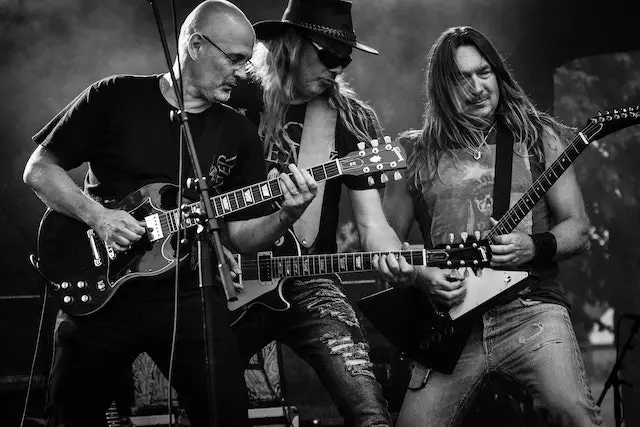
Networking is a crucial aspect of building relationships and creating opportunities in the music industry.
Here are some professional tips and creative ideas to help you network effectively:
1. Attend Music Events and Conferences:
– Attend music events, conferences, and industry showcases where you can connect with like-minded individuals, musicians, producers, and industry professionals.
– Take part in workshops, panels, and seminars to gain valuable insights and expand your knowledge.
– Approach people with a friendly and genuine attitude, showing interest in their work and experiences.
2. Join Music Communities and Organizations:
– Join local music communities, associations, or organizations that bring together musicians and industry professionals.
– Participate in online forums, groups, and social media communities specifically dedicated to music networking. Like We Are the Music Makers and Let’s Talk Music on Reddit.
– Contribute to discussions, share your insights, and engage with others to build connections and visibility.
3. Collaborate with Other Artists:
– Seek opportunities to collaborate with other musicians and artists. Collaborative projects allow you to tap into their network and gain exposure to their audience.
– Participate in songwriting camps, producer showcases, or local music projects to connect with potential collaborators.
4. Utilize Social Media:

– Leverage social media platforms to connect with fellow musicians, producers, and industry professionals.
– Engage with their content by liking, commenting, and sharing. Building genuine connections online can lead to potential collaborations or opportunities.
5. Build and Maintain an Online Presence:
– Maintain an active online presence through social media, a website, or a blog dedicated to your music.
– Share updates, behind-the-scenes footage, and insights about your creative process.
– Engage with your audience by responding to comments, messages, and feedback.
6. Attend Open Mic Nights and Showcases:
– Participate in open mic nights, local gigs, and showcases to perform and connect with fellow musicians and industry representatives.
– Be professional and prepared, showcasing your skills and unique style.
– Network with other performers, attendees, and event organizers during these events.
7. Offer Support and Help Others:
– Be generous with your support and help other musicians and industry professionals whenever possible.
– Attend their shows, promote their music, and offer assistance or advice when needed.
– Building a reputation as a supportive and reliable individual can open doors for collaborations and opportunities.
Remember, networking is not just about what others can do for you; it’s about building genuine relationships and supporting others in the industry.
Be respectful, professional, and approachable in all your interactions. Stay open-minded, be proactive, and seize opportunities to connect with industry professionals and fellow musicians.
With dedication, persistence, and a genuine passion for music, you can build a strong network that can help propel your career forward.
Managing Your Finances
Managing your finances effectively is crucial for sustaining a successful music career.
Here are some important tips and guidance on budgeting for music production and understanding music royalties:
Budgeting for Music Production:
- Determine Your Expenses: Identify all the costs associated with music production, including studio rental, equipment purchase or rental, mixing and mastering fees, session musicians, artwork, promotion, and distribution expenses.
- Prioritize Your Expenses: Prioritize essential expenses and allocate funds accordingly. Consider investing in quality equipment and production services that align with your goals and enhance the quality of your music.
- Research and Compare Prices: Research different options for studios, equipment, and services to find the best value for your budget. Compare prices, read reviews, and seek recommendations from fellow musicians or industry professionals.
- Seek Affordable Alternatives: Look for cost-effective solutions without compromising quality. For example, consider home recording setups or collaborating with other musicians who can contribute their skills and resources.
- Create a Realistic Budget: Develop a budget plan that reflects your income, estimated expenses, and financial goals. Regularly review and adjust your budget as needed to ensure you stay on track.
Understanding Music Royalties:
- Educate Yourself: Familiarize yourself with the different types of music royalties, such as mechanical royalties, performance royalties, synchronization royalties, and neighboring rights. Understand how they are generated and distributed.
- Register with Performance Rights Organizations (PROs): Register your original compositions with PROs like ASCAP, BMI, or SESAC (depending on your country) to ensure you receive performance royalties when your music is played on radio, TV, or public performances.
- Collaborate with a Publishing Administrator: Consider working with a publishing administrator who can help collect and manage your royalties from different sources, ensuring you receive the royalties you are entitled to.
- Monitor and Track Your Royalties: Keep track of your music’s usage, performances, and placements to ensure accurate royalty collection. Utilize royalty tracking tools and services to help you monitor and manage your income streams.
- Stay Informed and Seek Professional Advice: Stay updated on changes in royalty laws, industry practices, and emerging revenue streams. Consult with professionals such as music attorneys or accountants who specialize in the music industry to ensure you are maximizing your royalty earnings.
Financial Management:

- Separate Personal and Music Finances: Establish separate bank accounts and financial systems for your personal and music-related expenses. This separation will help you track your music income and expenses more efficiently.
- Create a Budget and Track Expenses: Develop a budget that outlines your projected income and expenses. Regularly track your actual expenses to ensure you stay within your financial plan.
- Save and Plan for the Future: Set aside a portion of your income for savings, emergency funds, and future investments in your music career. Prioritize financial stability to sustain your music journey.
- Consult with Financial Professionals: Seek advice from financial professionals, such as accountants or financial advisors experienced in the music industry. They can provide personalized guidance and help you navigate tax obligations and financial planning.
Additional tips:
– Tax Planning and Compliance: Understand your tax obligations as a music artist, including income tax, self-employment tax, and deductions related to your music career. Consult with a tax professional who can guide you through the process.
– Financial Record Keeping: Maintain organized financial records, including income, expenses, contracts, and receipts. Utilize accounting software or hire an accountant to help you manage your finances effectively.
Remember, managing your finances requires discipline, organization, and ongoing attention. Regularly assess your financial situation, seek professional advice when needed, and make informed decisions to secure a stable financial foundation for your music career.
FAQ’s
What are the most successful ways to make money as an independent music artist?
As an independent music artist, you can make money through music streaming and distribution, merchandise sales, live performances, YouTube and content monetization, music licensing, fan subscriptions, crowdfunding, music lessons, collaborations, and music production.
Diversify your income sources to ensure financial stability and adapt to industry changes for long-term success.
What are some of the key skills that independent music artist need to succeed?
To succeed as an independent music artist, essential skills include musical talent and creativity to craft compelling songs, self-motivation and discipline for consistent work, adaptability and resilience in the face of industry changes, marketing and promotional skills to reach your audience, networking and relationship building to collaborate and grow your fan base, business and financial management for sustainable career growth, strong performance and stage presence for captivating live shows, recording and production abilities to create high-quality music, valuing and respecting your fans as they are the foundation of your success. and a commitment to continuous learning to stay relevant.
What are some examples of successful independent music artists who have achieved mainstream?
Absolutely! Here are some independent music artists who’ve successfully transitioned into the mainstream:
– Alessia Cara: Alessia Cara, known for her hit “Here,” is a shining example of perseverance and staying true to her unique sound.
– Other notable artists: Chance the Rapper, Billie Eilish, Macklemore & Ryan Lewis, and Hozier.
These artists prove that independent musicians can attain mainstream success through talent, dedication, and strategic promotion.”
Post Updates Log
- On September 20, 2023 Post Published
- On September 14, 2023, Post Reviewed and Passed QC
